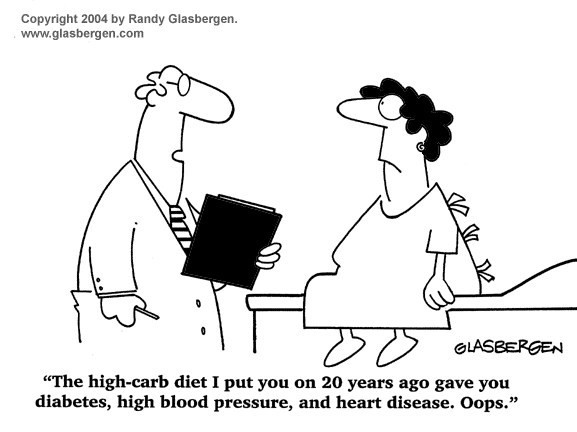Some people on here prefer to use fat as their main fuel. I saved my reply until someone who uses that sort of diet replied
I think it's important to understand exactly what we mean my blocked arteries and how most scientists think they get 'blocked;
This is a 'simple' animation from the welcome institute.
http://www.wellcome.ac.uk/Education-res ... 031558.htm
Most of us will have some plaque in our arteries,
How much? (and unless someone actually looks you won't know)
if there is a lot is there anything we can do about it ?
can we prevent too much further build up, prevent it from becoming unstable and likely to detach?
These are the conventional risk factors for high levels of plaque.
http://www.webmd.com/cholesterol-manage ... dup?page=2
( I would add that some peoples high cholesterol levels may be inherited, some people absorb far more from food than others and some people manufacture far more in the liver than others. There are children who suffer fromheart disease because they have inherited a defect that causes sky high cholesterol levels)
When I was diagnosed (as a slow onset T1) I had a cholesterol level of over 8mmol/l. I had scans on my arteries which showed a lot of plaque for my age.
I took statins at a high dose, I improved my intake of omega 3 fats. (a fat that may help thin the blood and increase blood flow) I increased my exercise. (and I was already doing quite a bit) I kept good glycemic control. Two years later my arteriologist was far happier. There was regression and my arteries were in a healthier state.
I've no idea which factor caused this, I have read that statins have been shown (in some cases) to cause regression but it could be the other factors I no longer take them as my cholesterol is OK without them. I would have no hesitation to start again.
Now I have better prospects. I am very hesitant about eating a diet that may increase LDL cholesterol so whilst I don't avoid any type of fat, completely or even particularly cut down overall fat intake , I am careful and try to avoid trans fats entirely and limit saturated fats. (you can't avoid them anyway, oily fish that have high levels of omega 3 still have a proportion of sat fat)
Advice from reputable sources such as that below from Harvard does not advocate a very low fat diet, it does still suggest care in the choice of fats. It points out that blogs and articles that declare saturated fat to be vindicated are making an over simplified and erroneous interpretation of the evidence.
"the message is more nuanced: Cutting back on saturated fat can be good for health if people replace saturated fat with good fats, especially, polyunsaturated fats. (16,25) Eating good fats in place of saturated fat lowers the “bad” LDL cholesterol, and it improves the ratio of total cholesterol to “good” HDL cholesterol, lowering the risk of heart disease."
http://www.hsph.harvard.edu/nutritionso ... index.html
(though I still eat butter, just don't eat that much of it)



